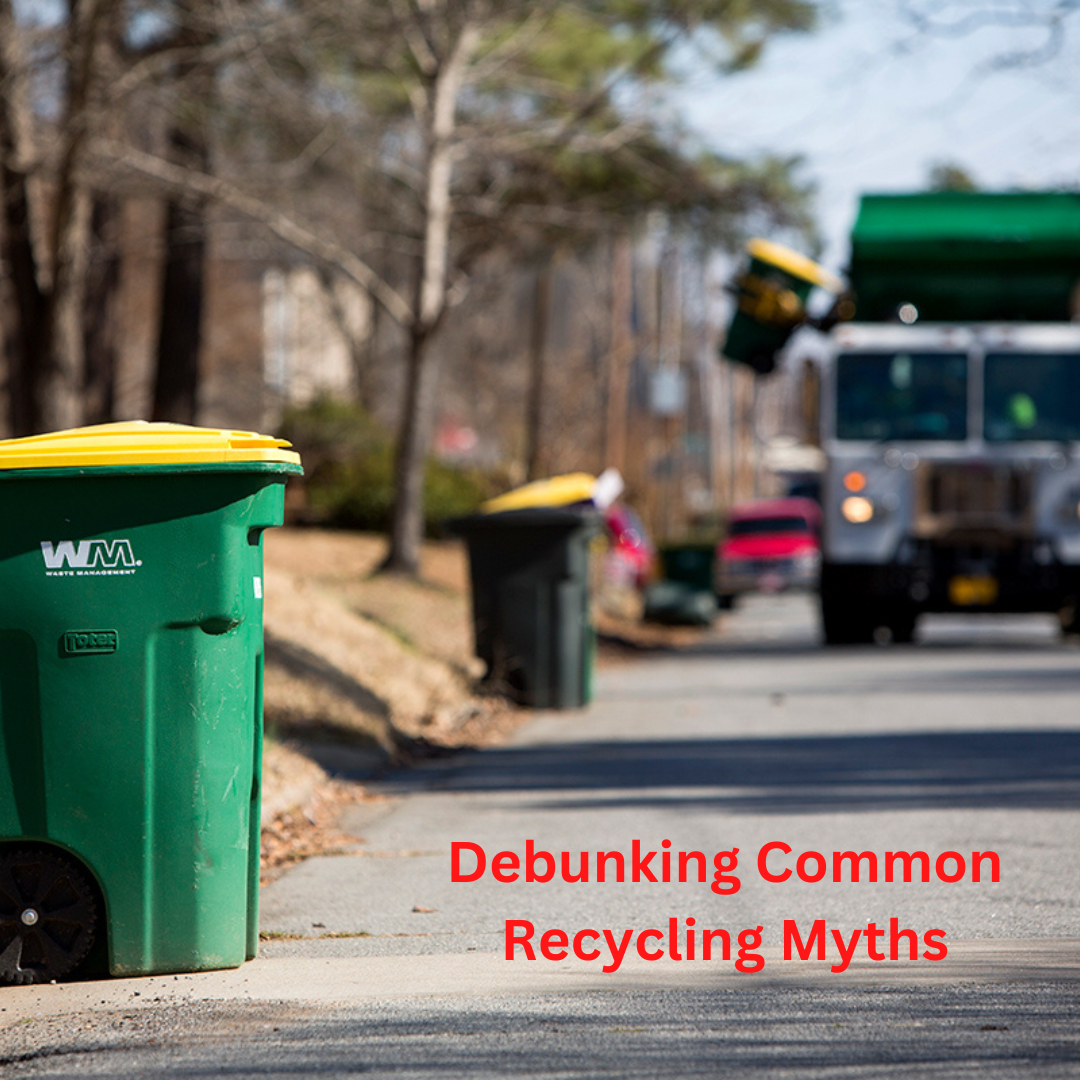Debunking Common Recycling Myths
Recycling is crucial for reducing waste and conserving resources, but some myths can hold some of us back from maximizing its potential. Let’s debunk a few common misconceptions:
1. Recycling doesn’t make a difference.
This is far from true. Recycling conserves natural resources, saves energy, and reduces the amount of waste sent to landfills. In fact, recycling aluminum saves 95% of the energy needed to make new aluminum from raw materials. Also, empty glass bottles and jars are 100% recyclable!
2. All plastics are recyclable.
Not all plastics are recyclable. Items like plastic bags, straws, and certain types of plastic packaging are often not accepted. Plastics accepted in Pulaski County include empty #1 and 2 plastic bottles and jugs, empty #1 plastic clamshell containers, empty #7 reusable plastic bottles, and empty #5 plastic tubs. The numbers are on the bottom of the containers. Look for them. Avoid contaminating the curbside recycling cart with non-recyclable plastics.
3. Recycling is too expensive to taxpayers and the community.
While recycling can have initial costs, it’s an investment that pays off long term by reducing the demand for new raw materials for manufacturing, lowering energy consumption, and cutting waste disposal costs. Pulaski County has found that recycling programs save money in the end. And recycling creates private-sector jobs, adding to local economic development.
4. If it’s clean, it’s recyclable.
While clean items are more likely to be processed, not everything that looks clean is recyclable. For example, cardboard pizza boxes are accepted in your cart, however, if the top or bottom of the box is contaminated by grease stains, put those parts in your trash. You should also make sure all bottles, jars, and containers are empty before placing them in your cart to ensure all recyclables can be processed. And remember, plastic bags should never go in your recycling cart, even if they are clean and empty.

